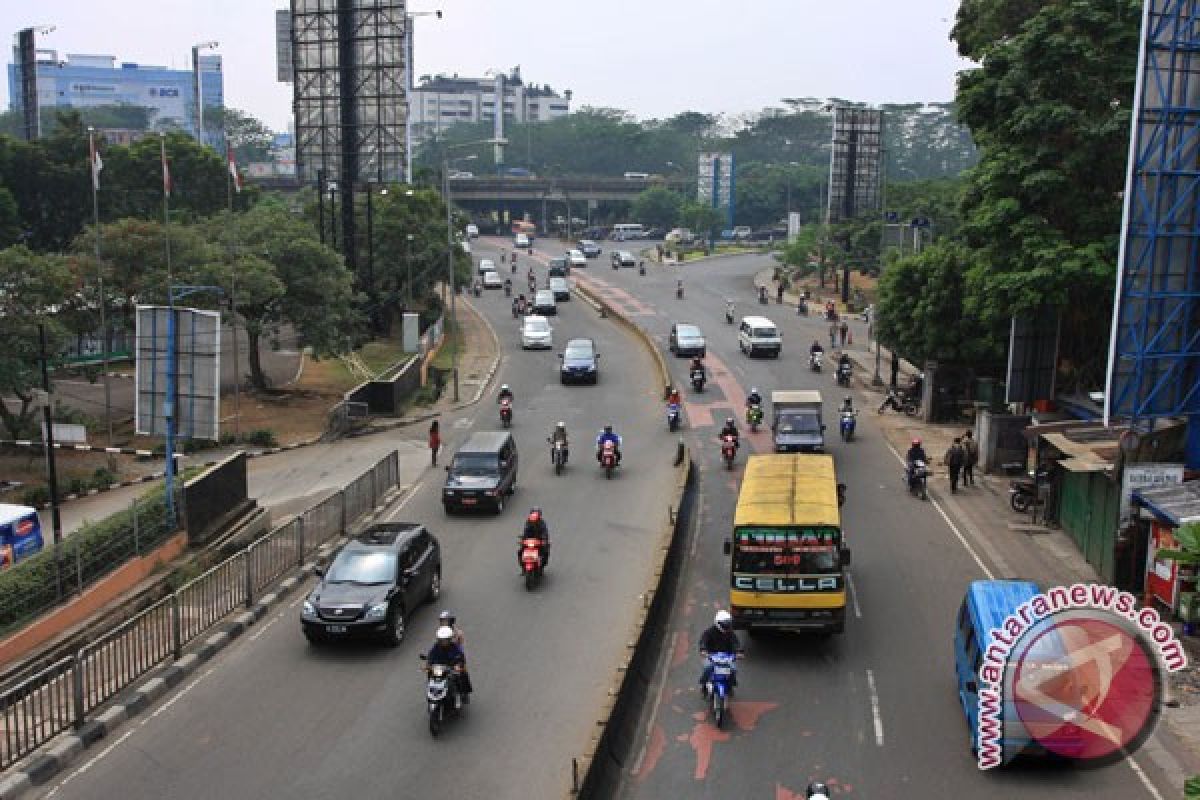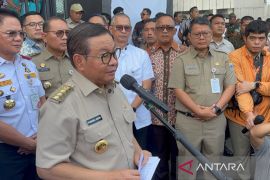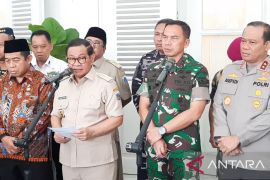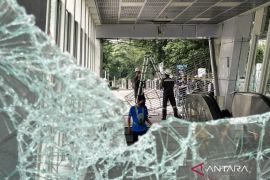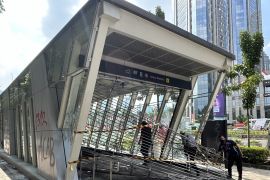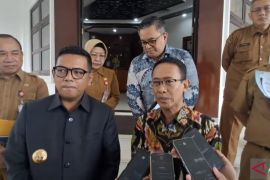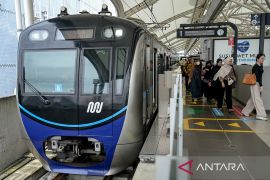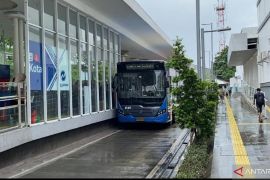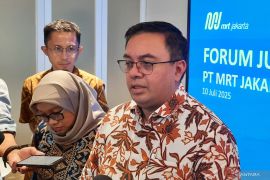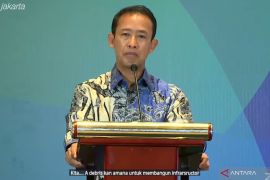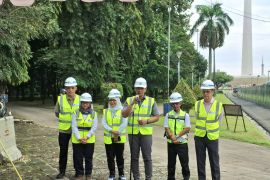Jakarta Governor Fauzi Bowo said last week that the Japan International Cooperation Agency (JICA) had issued a No Objection Letter (NOL) on the plan to construct the MRT, and a prequalification tender has also been held to follow up on JICA`s NOL.
The 600 billion yen project will begin to be implemented next year after the Japanese government, at a meeting last September, made a commitment to provide the needed funds.
"The investment needed to build the MRT is estimated at 600 billion yen," Japanese Minister for Trade, Economic and Industrial Affairs Yukio Edano said at a joint press conference with Chief Economic Minister Hatta Rajasa.
The Japanese commitment was announced last September during a second MPA (Metropolitan Priority Area for Investment and Industrial Development) meeting between the governments of Indonesia and Japan.
The Jakarta MRT system is one of the potential fast track projects included in the MPA scheme which as a whole is estimated to be worth two to three trillion yen.
"This is only an estimate. We have to study the details in the master plan first. When the preparations are completed and tenders are about to be opened, we will be able to reveal the overall value," the Japanese minister said.
"We call it a fast track project because it is given first priority and expected to be completed before the end of 2014," Hatta Rajasa said meanwhile.
According to the Jakarta governor, the NOL has been followed up with the calling of the prequalification tender whose result was announced on December 8, 2001.
A total of 10 consortium or joint operation contractors were said to have passed the prequalification tender for the construction of the first phase of Jakarta MRT project that would link Lebak Bulus in South Jakarta with Hotel Indonesia Traffic Circle in Central Jakarta (the north-south phase).
Based on data at PT MRT, 13 consortium bidders took part in the prequalification tender. Of the 13 bidders, five were said to be qualified for next MRT elevated project tender and five others for the MRT`s underground section, while the other three failed the prequalification bid.
President Director of PT MRT Jakarta Tribudi Rahardjo said that the ten consortiums were expected to follow the next tender which would be called for the physical construction of the project in January next month.
Five consortiums which passed the tender for the construction of the underground segment were Kajima-Waskita Joint Operation (JO), Obayashi-Shimizu-Jaya Konstruksi-Wijaya Karya JO, SMCC-HK JO, Taisei-PP JO and Tokyo-Adhi JO.
"The five consortiums for the elevated section of the MRT include Hazama-Murinda Iron Steel JO, SMCC-NK JO, Sunitomo-Adhi JO, Tekken-Hutama-Marubeni JO and Tokyo-Wika JO," Tribudi said.
"The 10 consortiums have the right to take part in the tender of the MRT physical projects. They will compete to win 6 packages of the MRT physical construction," he said.
He said that the tender would be called for the six packages in accordance with negotiations with the ministry of transportation, the Jakarta government and PT MRT with a target for the MRT operation by 2016.
According to Governor Fauzi Bowo, after the tender for the physical construction, winners of the tender are expected to sign contracts in September 2012, yet work on supporting infrastructures should be started in April 2012 at the latest.
"We hope the contracts would be signed in September 2012. Pending the signing of the contracts, we urge the management of PT MRT Jakarta to start the work on the supporting infrastructure in April at the latest," the governor said.
Fauzi said that he had instructed PT MRT to carry out supporting infrastructures such as land clearance, the widening of Jalan Fatmawati, relocation of Lebak Bulus Soccer stadium, arrangement of passenger transportation at Lebak Bulus bus terminal and the relocation of a number bus shelters so that the target to operate the MRT in 2016 would be achieved.
The Jakarta governor earlier said the first MRT stage would cover the North-South (Lebak Bulus-Hotel Indonesia) route stretching 15.5 kilometers long, with 10.5 kilometers elevated on the surface and five kilometers underground.
Six underground stations would be built along the route, namely at Masjid Al Azhar, Istora Senayan (Ratu Plaza), Bendungan Hilir, Setiabudi, Dukuh Atas, Bundaran Hotel Indonesia, and seven elevated stations, namely at Lebak Bulus, Fatmawati, Cipete Raya, H Nawi, Blok A, Blok M and Sisingamangaraja.
"In the beginning of the operation, the MRT will have a capacity to carry 212,000 people per day, which can be raised to 960,000 per day. The route can be covered in 30 minutes and the tickets will be integrated with the other relevant modes of transportation," he said.
The train headway in the first stage is projected at five minutes, which could be increased to every three minutes.
For that purpose, up to 144.322 billion yen would be needed or Rp15 trillion. About 120.017 billion yen of the funds would be a loan. Only 0.2 pct amounting to 24.305 billion yen will be drawn from the State Budget and regional budget.
In the meantime, the feasibility study of second phase (east-west route connecting Kampung Bandan with Hotel Indonesia Traffic Circle ) of the MRT system has also been conducted and its results are expected to be announced at the end of December 2011, according to the governor.
Yet, the relevant institutions are still conducting further studies as the east-west route stretches across the areas of three provinces of West Java, Banten and Jakarta.
"We will cooperate with two other provinces of West Java and Banten. Feasibility studies are already completed. Now we will continue to the stage of deepening the plan," the governor said.
(T.A014/HAJM)
Reporter: by Andi Abdussalam
Editor: Priyambodo RH
Copyright © ANTARA 2011
